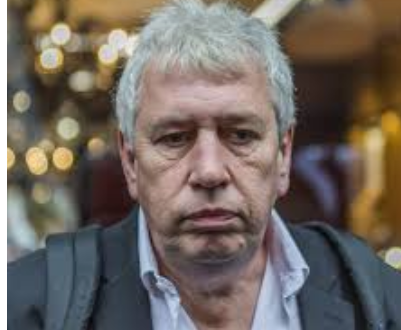Paul Goodman MP, the outgoing Shadow Minister for Communities, has an important post up at Conservative Home, in which he calls for a Select Committee on Anti-Muslim Hatred.
His piece – which you should read in full – is excellent, and makes many of the points I would want to make myself. I think that there is a serious problem in this country with both Islamophobia – that is, treating Islam as a monolithic, undifferentiated, and unchangeable ideology, to be despised and feared – and the visceral hatred of Muslims. As Paul explains, the two phenomena are different and require different analyses and responses:
There’s a difference between Islamophobia and the hatred of Muslims – although the two are indisputably linked. The target of the first is a religion. The target of the second is people. There’s a crucial distinction between the two – one vital if the free society’s to be preserved. If a person hates a religious faith, the law should be drawn very widely, if at all. If he hates religious people, it must be framed more tightly. In short, hatred of Islam, like (say) hatred of Christianity, shouldn’t be a matter for the law (though I believe very strongly that it should be deplored); but the hatred of Muslims – like the hatred of Christians – should be such a matter, and laws against incitement should be in place.
There is also the problem that groups linked to extreme and vicious political parties use the ‘Islamophobia’ smear in order to prevent criticism of their activities. Paul makes an important point in relation to the activities of these groups:
For some Islamist organisations, Islamophobia is less a testing problem than a rhetorical device to delegitimise criticism – a shield behind which to advance on Ministerial patronage, taxpayers’ money, and legal concessions. Let’s be clear. When David Cameron said that the Cordoba Foundation shouldn’t get taxpayers’ money, he wasn’t being Islamophobic. Nor was Michael Gove when he argued that Hizb-ut-Tahrir shouldn’t control schools. Nor was Pauline Neville-Jones when she called for Ministers to review Tablighi Jamaat’s plans for a mega-mosque in East London. Exposure of such Islamist groups as the Islamic Forum of Europe – often voiced by mainstream Muslims themselves, who are Islamism’s main targets – is legitimate and necessary. Islamophobia/anti-Muslim hatred is too important a problem to be left for extreme groups to manipulate for their own ends.
I agree with him.
This is what Paul Goodman proposes:
There are calls at present for an all-party enquiry into Islamophobia– mirroring the previous all-party enquiry into anti-semitism. I doubt whether the comparison holds. As I wrote earlier, there’s no Muslim equivalent of the Community Security Trust. This is doubtless because Britain’s Jewish and Muslim communities are very different: the national background, ethnicity, languages, and theological approach of the latter vary enormously. It’s hard to envisage an All-Party Group on Islamophobia representing the interests of all Britain’s diverse Muslim communities. It’s easy to imagine such Islamist groups as the Muslim Brotherhood or the Jamaat e Islami infiltrating such a group for their own purposes.
For this reason and others, some will want either to declare that Islamophobia/anti-Muslim hatred aren’t real problems at all, or that government and Parliament have no role in tackling either. I disagree with this view. There’s evidence – like that cited earlier – that the hatred of Muslims and anti-Muslim violence are serious problems . Something should be done.
I suggest a proper Select Committee inquiry to take place during the next Parliament. The most suitable vehicle would be the DCLG Select Committee, since the DCLG deals with community cohesion. It would collect written submissions, take oral evidence, issue a report, make recommendations.
It should take evidence as widely as possible. If the Jamaat e Islami or the Muslim Brotherhood wanted to make representations, they should be allowed to do so. So should think-tanks specialising in counter-extremism, such as the Quilliam Foundation or Centri. So should the police. So should those who believe (wrongly, in my view) that Islamophobia is an imaginary construct, and doesn’t exist at all.
Could such an enquiry be exploited by Islamists? Yes. Is that a good reason for not having it? No. Why? Because the problem of the hatred of Muslims and anti-Muslim violence, in particular, is grave. It’s a wound that can only fester. Parliament has a role to play in drawing the poison.
I agree that there is a need for an inquiry, that Parliament is the appropriate venue, and that the DCLG Select Committee – rather than an All Party Group – is the appropriate host of such an investigation.
I have some additional thoughts on this issue, and I hope to share them with you over the next few days.


